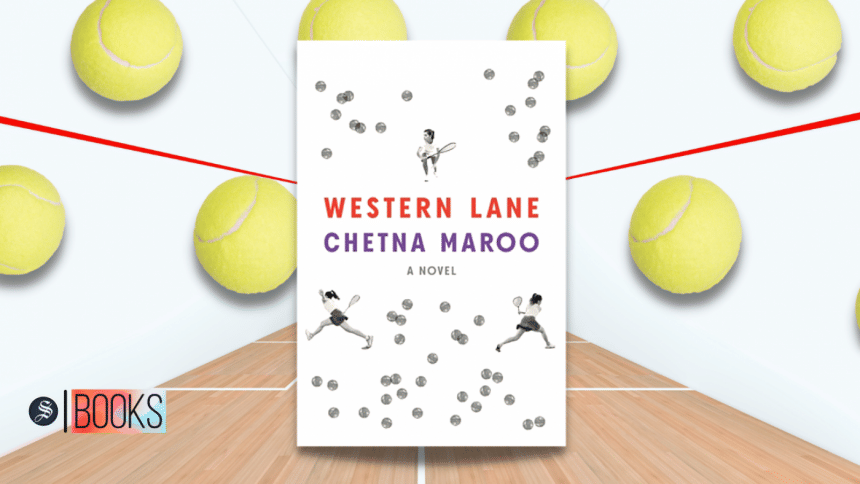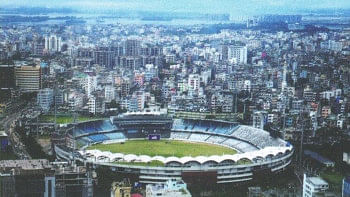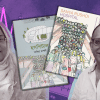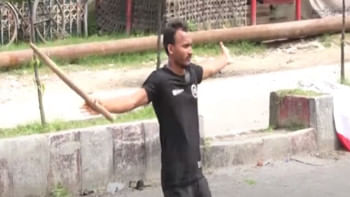Western Lane: Grief unfolding on squash court

Squash is not a game that everyone plays and knows about, hence, the squash court will not be familiar to most of the readers. But the grief that unravels in and around the squash court in Chetna Maroo's Western Lane (Farrar, Straus and Giroux, 2023) is all too familiar a humane experience. Now longlisted for the 2023 Booker Prize, Western Lane is the British-Indian writer's debut novel and a remarkable one in that.
Set in the late 1980s in an unspecified part of London, the story is centred upon a bereaved Jain family—a father and his three daughters—who recently lost their mother and the narrative unfolds as a cloud of grief looms large over the family.
It is a coming-of-age story, a retrospective first person narration by Gopi, the 11-year-old protagonist of the novel. Gopi is the youngest of the three sisters, the other two sisters, Kush and Mona, are respectively 13 and 15 year-old. While their father is the one who after their mother's death is naturally supposed to take care of them, he too is grief stricken to properly take care of his daughters. At the suggestion of their aunt, however, Pa makes Gopi and her sisters pursue squash so they can find a way to discipline themselves and ultimately find solace in the coping mechanism through sports.
While Kush and Mona get respite from squash, Gopi does not. She is driven to the extremities with rigorous training. Surprisingly, she follows along, finding solace in the squash court and friendship in the form of Ged. Meanwhile, their home is filled with the sound of silence. Pa does not talk to his daughters about the loss of their mother or about how they can collectively face this terrible time; instead, they all try to avoid the conversation. But the emptiness follows them along—something that the writer movingly portrays. She shows how a void that is created from the loss of a dear one is almost impossible to be filled.
There is more squash in the book than most readers will take a liking to, but the game sometimes works as a metaphor for the bigger picture. The 'ghosting' in the squash court parallels Gopi's battling with her mother's loss single-handedly, without anyone else's guidance and support. Maroo also explores the immigrant experience, how immigration impacts the older generation and how the newer generation deals with it, the subtleties in the differences between communities, and the tensions that arise in crossing communal boundaries.
The narrative of Western Lane is anything but swift and it does not develop much in terms of significant changes taking place in the central characters' arcs. All the little things that take place slowly unfurl the grief that everyone is grappling with.
This is not a mammoth book, not even long, but in just 176 pages, it packs a punch. Maroo has the extraordinary ability to discern between what to say and what to omit, to convey subtly without explicitly pointing out, and to be able to express the manifold and varied emotions of her characters by saying as little as possible. The 'in-betweens' of the lines, the unsaid rather than the said, often become more palpable, more grievous and more haunting.
However, the book ends abruptly, without any apparent fulfilment of its characters—and this is perhaps the only thing it lacks, it arises a yearning to know a little more of what happens to Maroo's central characters, prominently Gopi. But considering the literary value, the universality of grief, loss, connection, sisterhood, and belonging that it depicts and the emotional depth to which Western Lane probes, it will not come as a surprise if this makes it to the shortlist of this year's Booker Prize.
Najmus Sakib studies Linguistics at the University of Dhaka. Reach him on X at @sakib221b.

 For all latest news, follow The Daily Star's Google News channel.
For all latest news, follow The Daily Star's Google News channel. 










Comments